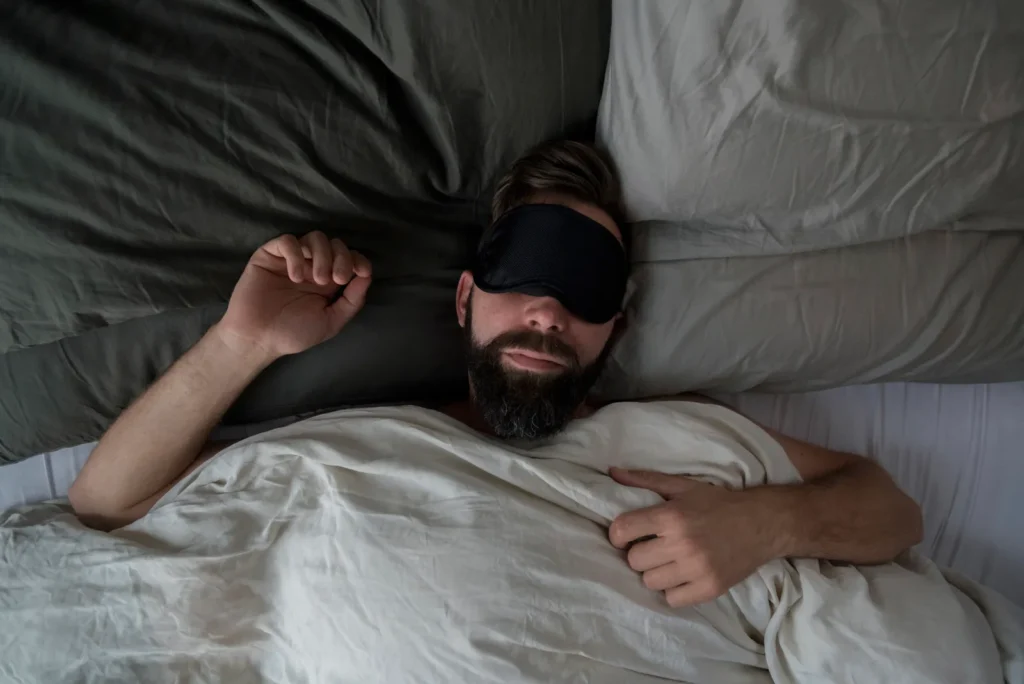“Beauty sleep” isn’t just a charming phrase from fairy tales and movies—it’s backed by science. Sleep doesn’t only restore your energy and improve brain function, it also directly affects how you look. From smoother skin to brighter eyes, getting the right amount of rest really can make you appear healthier, fresher, and more attractive.
But here’s the million-dollar question: what time should you go to bed for maximum beauty sleep benefits?

What Is Beauty Sleep, Really?
The idea of “beauty sleep” refers to the physical rejuvenation and repair that occurs while your body is at rest. Dermatologists, sleep scientists, and health experts agree: your skin and body regenerate most effectively while you’re sleeping.
When you enter deep sleep stages, blood flow to your skin increases, collagen production ramps up, and cellular repair kicks into high gear. This process helps reduce fine lines, improve elasticity, and promote a radiant complexion.
Sleep deprivation, on the other hand, is a shortcut to looking exhausted: dark circles, dull skin, red eyes, and even premature wrinkles.
How Sleep Affects Your Appearance
The benefits of sleep go far beyond avoiding eye bags. Here’s how it influences your attractiveness, backed by science:
1. Reduces Dark Circles and Puffiness
Lack of sleep leads to blood vessel dilation under the eyes, causing that dreaded dark, shadowy look. Fluid retention also contributes to puffiness.
2. Boosts Skin Repair and Collagen Production
Collagen is the protein that keeps skin firm and youthful. During deep sleep, your body produces growth hormone, which stimulates collagen production and tissue repair.
3. Improves Complexion and Glow
Adequate rest improves blood circulation, giving skin a natural rosy tone. Sleep deprivation, in contrast, leaves skin pale and dull.
4. Reduces Stress Hormones
High cortisol (the stress hormone) breaks down collagen and causes inflammation, leading to acne and fine lines. Consistent sleep lowers cortisol levels.
5. Supports Hair and Nail Health
Nutrients and oxygen are better delivered to hair follicles and nails during deep sleep, supporting healthy growth and strength.
6. Boosts Confidence and Mood
Looking rested makes you feel better, and confidence itself is a key component of attractiveness. Research even shows that sleep-deprived individuals are rated as less trustworthy and less attractive in social perception studies.
Is Beauty Sleep a Myth? Science Says No
You won’t wake up looking like a movie star overnight, but studies confirm that people who get enough rest are perceived as healthier and more attractive.
A study published in the Royal Society Open Science journal found that sleep-deprived individuals were rated as less attractive, less healthy, and less approachable compared to when they were well-rested.
The Sleep Foundation also notes that consistent, high-quality sleep not only improves mood and energy but also directly influences your physical appearance.
So, no—it’s not a myth. Beauty sleep is very real.
What Time Should You Go to Bed for Beauty Sleep?
The ideal bedtime depends on when you wake up and how many hours of sleep you need. Adults should aim for 7 to 9 hours of sleep per night, with 8 being the sweet spot for most people.
For example:
| Wake-Up Time | Ideal Bedtime (for 8 hours of sleep) |
|---|---|
| 5:30 a.m. | 9:30 p.m. |
| 6:00 a.m. | 10:00 p.m. |
| 7:00 a.m. | 11:00 p.m. |
| 8:00 a.m. | 12:00 a.m. |
The key is consistency. Going to bed at the same time every night helps regulate your circadian rhythm (your body’s internal clock), making it easier to fall asleep and wake up naturally.
If your goal is to look fresher and more attractive the next morning, set a bedtime that ensures you’re not cutting corners on rest.
Tips to Maximize the Power of Beauty Sleep
Getting enough hours is essential, but quality matters too. Here are expert-backed strategies to level up your beauty sleep:
1. Wash Your Face Before Bed
Cleansing removes dirt, oil, and pollutants that can clog pores overnight. Sleeping with makeup can accelerate aging and dullness.
2. Moisturize Overnight
A good night cream or serum helps skin retain hydration and repair while you sleep. Ingredients like hyaluronic acid, retinol, and peptides can be especially beneficial.
3. Elevate Your Head
Sleeping with your head slightly elevated prevents fluid buildup around the eyes, reducing puffiness in the morning.
4. Choose the Right Pillowcase
Silk or satin pillowcases minimize friction, reducing wrinkles and hair breakage.
5. Block Morning Sunlight
Exposure to early sun on your face can lead to uneven pigmentation. Use blackout curtains or an eye mask for uninterrupted sleep.
6. Sleep on Your Back
Sleeping on your stomach or side can press your face into the pillow, causing sleep lines and contributing to wrinkles over time.
7. Create a Relaxing Routine
Wind down with activities like reading, meditation, or light stretching. Avoid screens at least an hour before bed—blue light delays melatonin production.
8. Keep Your Room Cool
A cooler environment (around 65°F / 18°C) helps your body enter deep sleep stages more easily.
Lifestyle Habits That Support Better Sleep (and Better Looks)
Your daily habits play a major role in how well you sleep at night. To supercharge your beauty sleep, consider:
- Regular exercise: Improves sleep quality and circulation.
- Balanced diet: Nutrients like vitamin C, omega-3s, and antioxidants support skin health.
- Hydration: Dehydration can make skin appear dull and tired.
- Stress management: Yoga, meditation, and journaling lower cortisol and improve rest.
Common Beauty Sleep Myths (Debunked)
- “You can catch up on sleep later.” Wrong. Sleep debt can’t be fully repaid, and chronic lack of rest still shows on your skin.
- “More sleep is always better.” Too much sleep (over 10 hours regularly) can be linked to health issues and won’t necessarily improve appearance.
- “Naps replace nighttime sleep.” Naps help, but they don’t deliver the same restorative benefits as a full night’s sleep.
Beauty Sleep Is Real—and Achievable
The secret to looking attractive the next day isn’t found in expensive creams or filters—it’s in your bedroom clock. By prioritizing 7–9 hours of consistent, high-quality sleep, you give your body time to repair, refresh, and restore its natural glow.
So, what time should you go to bed? The answer is simple: early enough to give yourself at least 8 hours before your alarm rings. For most people, that means somewhere between 9:30 p.m. and midnight, depending on your wake-up schedule.
Sleep well, and your mirror (and everyone else) will notice.





